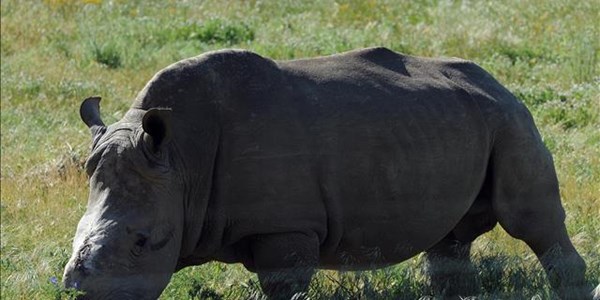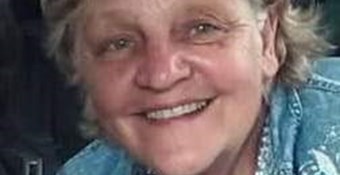National
Rhino owners cry foul after poaching gang suspects get bail─── 11:52 Sun, 21 May 2017

Grahamstown - South Africa’s rhino security community has expressed outrage after a Grahamstown High Court judge granted bail to three of the country's most notorious rhino poaching suspects, the Ndlovu Gang, releasing them from police custody.
This despite strong arguments from the State that the trio posed an immediate flight risk and a continued threat to rhino. A month after hearing the group’s second bid for bail, in April, Judge JE Smith this week granted R15 000 bail each to Zimbabwean nationals Forget Ndlovu, 40, and Jabulani Ndlovu, 38, and man who claims to be a South African, Sikhumbuzo Ndlovu, 37.
News of the court’s decision immediately reverberated throughout South Africa’s rhino community, drawing angry reactions from rhino owners and anti-poaching experts who have been involved at the coal-face in the battle against rhino poaching.
The Ndlovu Gang had been incarcerated since their arrest in June 2016, when stock-theft unit officers pounced on them at chalet # 8, at the Makana Resort outside Grahamstown.
Smoking gun
Investigators found the trio literally holding the smoking gun, and a mother lode of other evidence that could see them locked up for more than 15 years. It included the freshly-harvested horn of a white rhino bull that had been poached at the nearby Buckland’s Private Game Reserve, worth approximately R1.2 million. A darting rifle and drugs used to dart animals, various darts, saws and knives, camping gear and rations, as well as two rental cars and cell phones, were removed as evidence.
The dart gun has since been forensically linked to several incidents across the country in which darts and the lethal drug M99 were used. Described as a highly organised poaching syndicate with access to scheduled wildlife darting chemicals and guns, the group allegedly travelled the country silently darting rhino with lethal, scheduled drugs, and removing their horns. All three had made several trips to Zimbabwe in recent years.
KwaZulu-Natal’s Project Rhino co-ordinator, Chris Galliers, said: “In light of South Africa’s current rhino poaching situation, the court’s unfortunate decision is a lost opportunity to send a strong message to poachers and crime syndicates responsible for killing our rhino.
“Historically speaking, many suspects have been re-arrested for committing the same offences while out on bail, while others have simply skipped bail and disappeared.
Justice system slammed
“Given the severity of the charges and the towers of solid evidence put forward by the State, the bail appeal should have been rejected outright by the High Court,” he added.
Chair of the Private Rhino Owners Association, Pelham Jones, slammed the justice system.
“To learn that a hardened criminal group of this calibre has been allowed bail and released from custody, is unacceptable!
“We have in the past called similar situations to the National Prosecution Authority (NPA), and we find it bizarre and extremely alarming that foreign nationals with the risk profile these individuals have, and the ability to perpetuate further crimes, are given bail. This needs to be addressed urgently.’’
Their initial bail applications were dismissed by Grahamstown magistrate, Ntsoki Moni, in November 2016.
In an affidavit, Stock Theft and Endangered Species Unit detective Captain Mornay Visser said the men were the prime suspects in as many as 40 rhino killings in the Eastern Cape since 2009, as well as about 50 in KwaZulu-Natal, five in Limpopo and four in the Southern Cape.
Court documents reveal how the gang had allegedly used rental vehicles and how they visited targeted reserves as guests before killing the rhino, as well as suspicions they used fake passports.
Moni denied their bail application and said they had also been linked to other incidents of rhino poaching, and that there was a warrant of arrest out for them in Limpopo.
Last month, the Ndlovus launched their second bid for bail, this time before the High Court. He said: “The fact that the state had established a prima facie case against the appellants is only one of the factors that I am required to consider. I am also constrained to consider whether, insofar as there may be a flight risk, it is possible to effectively curtail it by setting strict conditions.
“While the reasonable prospect of imprisonment and substantial monetary fines will serve as an incentive to the appellants to evade trial, having weighed up the appellants’ rights to liberty and the interests of justice, the appellants have established, on a balance of probabilities, that it will be in the interests of justice to release them on bail," he said.
The Ndlovus were released on strict bail condition which include house arrest and they had to surrender their passports.














